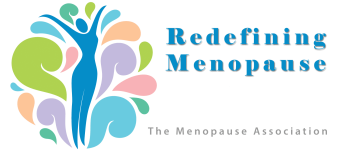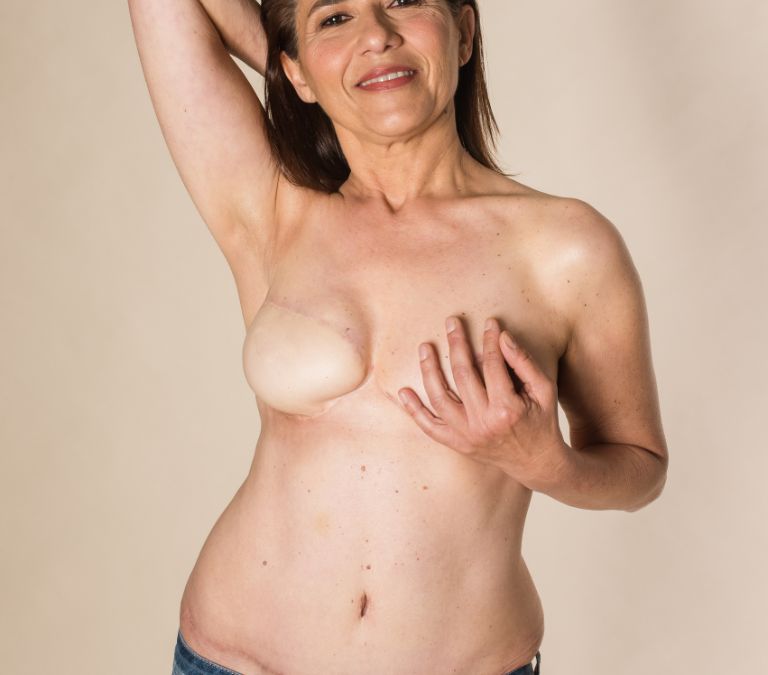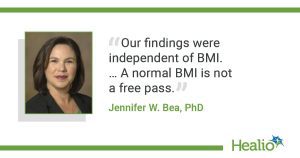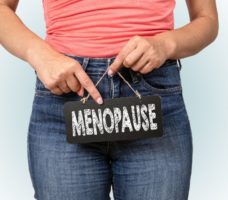That point in a woman’s life when her ovaries lose the ability to produce eggs, and she becomes unable to bear children. Menopause! The time of your life when you kiss goodbye to the stress of the reproductive years and say welcome to years free of periods, birth control, and pregnancy. Many women see this natural transition as a time of rest and absolute freedom from reproduction. However, this is not always so.
The period of menopause can come with it, with some symptoms of varying severity. From hot flashes to night sweats, anxiety to even weight gain, menopause can come as a time of rest or no rest. So many women today are not well enlightened on the entire concept of menopause and how the body adjusts to it. Menopausal women are often at the receiving end of health issues, most of which could be prevented or adequately managed.
This article will analyze the link between menopause and breast cancer. We will also examine the role menopause plays in developing breast cancer and treatment options for breast cancer.
Understanding Menopause And Breast Cancer
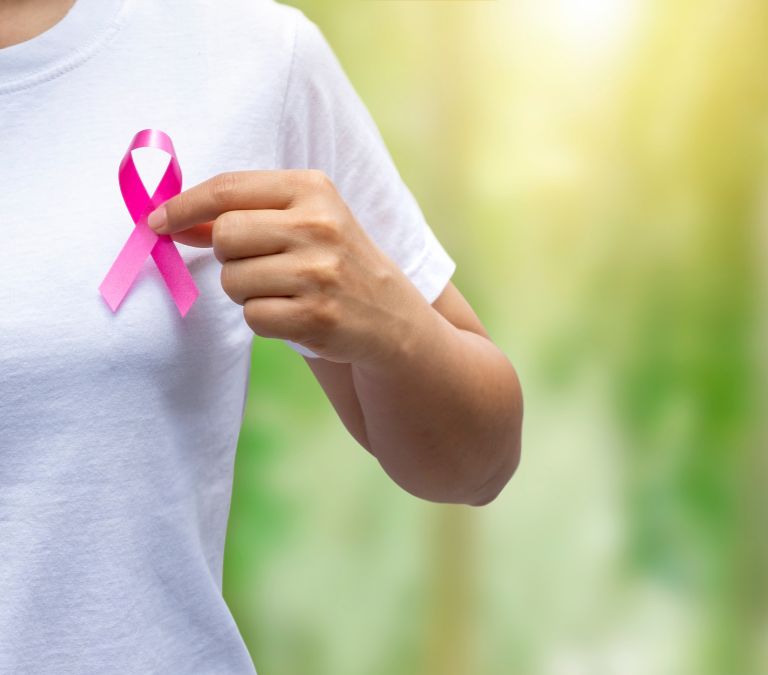
Breast Cancer, the most common cancer in females and the second most common cancer overall is a type of cancer formed in the cells of the breasts. Although breast cancer occurrences in the United States have been steadily declining, it remains the leading cause of cancer deaths among females.
Most breast cancers are benign and not malignant. Benign tumors in the breast are unwanted growths that do not spread outside the breast. While benign breast tumors are not life-threatening, they can become malignant when not given early treatment.
Roughly 95% of women with breast cancer are above age 40. We can see that age is the most significant risk factor for cancer. Generally, younger women are less likely to develop breast cancer than older women; this means that a woman’s susceptibility to breast cancer increases with age. Also, genetic factors can come into play in developing breast cancer. If an immediate relative has fought breast cancer, there is a high chance of you developing it too.
Just like other types of cancers, breast cancer has numerous risk factors. Some of them include:
- Inability to bear children
- Experiencing first childbirth after the age of 30
- Early menstruation (before age 12)
- Having a history of colon, ovarian, or uterine cancer
- The development of cancer in one breast could affect the other breast
- Having BRCA1 or BRCA2 gene mutation
- Late menstruation (after age 55)
- Rapid weight gain or obesity after getting menopause
It is essential to know that menopause does not increase a woman’s risk of breast cancer. Breast cancer is linked to menopause because of the drugs used in treating menopausal symptoms, aging, or poor lifestyle options.
The rate of breast cancer in the United States is relatively lower compared to countries like Belgium and France.
The Link Between Menopause and Breast Cancer
Menopause is more than just the termination of childbirth. With menopause come symptoms of varying severity to which breast cancer can be linked. Research has shown that a woman’s risk of breast cancer increases on getting to menopause. However, women who go into menopause at the late mid-age stages of their lives have a 3% increase in the risk of developing breast cancer.
Generally, menopausal women tend to be more vulnerable to rapid weight gain, which is capable of causing cancer and heart diseases like palpitated heart and high blood pressure. Women like us going through menopause are most likely to experience varying hot flashes.
My transition into menopause was relatively smooth, with minimal complications. I didn’t see menopause as a big deal, so I made zero adjustments to this new phase of life. After a few months, I started experiencing some mild hot flashes. According to my doctor, hot flashes were typical during menopause and could be managed effectively.
I managed every minor symptom of menopause using lifestyle and diet changes as I wasn’t a big fan of medications. Some months later, I noticed how easy it was for me to gain weight. I took the exact portion sizes before menopause and added more weight than I did during my reproductive years. With this, I was keen on finding the cause of this rapid weight gain. It led me to conduct independent research on weight gain during menopause and how it could trigger breast cancer.
Menopausal women are more at risk of being overweight or obese. Note that obese and overweight women are prone to breast cancer. While weight gain is a characteristic symptom of menopausal women, it is essential to know that not all women experience weight gain during menopause. The question remains; why do women become vulnerable to weight gain during menopause? Several factors tend to trigger weight gain in menopausal women. Genetic factors, insulin resistance, and hormonal fluctuations are why menopausal women gain weight.
The Influence of Weight Gain and Obesity on Breast Cancer
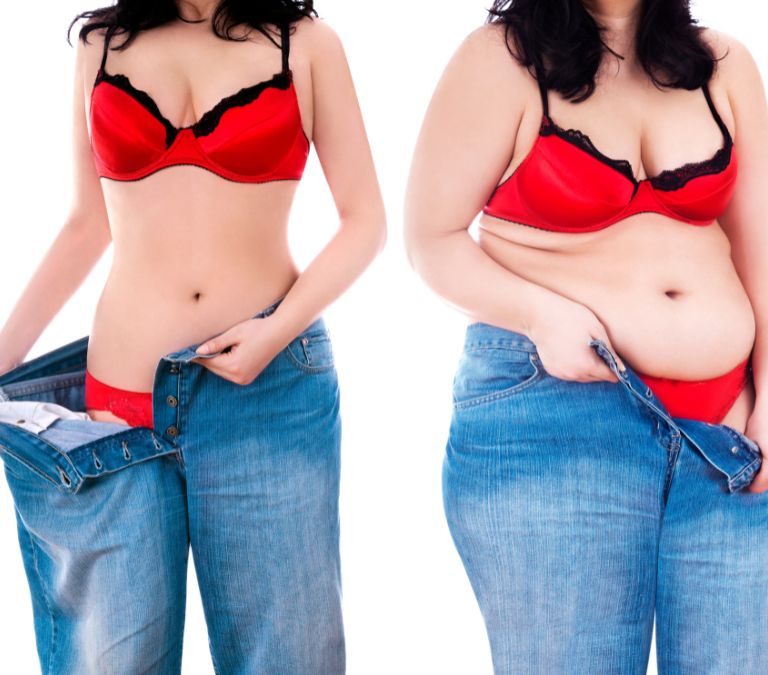
In cancer risk, obesity plays a significant role. Research has shown that about 45% of menopausal breast cancer patients are obese. Amid this health crisis, black women are more at risk of developing breast cancer from obesity, as research has shown that an average black woman in The United States is 50% more likely to be obese than a white woman.
So, how does your weight cause breast cancer? The impact of obesity on your risks of developing breast cancer is due to rising estrogen levels caused by having more fat tissues. The direct effect of weight gain on breast cancer is still not well known today.
With this, scientists usually find it very difficult to answer the question; will losing weight reduce my risk of breast cancer? The answer remains no. Obesity increases your risk of developing breast cancer, but reducing weight has not been proven to help cushion the probability of developing breast cancer. Maintaining a healthy weight is a perfect way to shield yourself from many diseases.
How to Prevent Breast Cancer
There are no distinct ways of preventing breast cancer. However, there are some practices you can adopt to help you lower your risk of developing breast cancer. Some of these ways include:
Maintaining a Healthy Weight
Weight gain during menopause can lead to complications in your health. During menopause, the fat tends to build in the abdomen instead of at the hips. With this, the body becomes prone to illnesses linked to weight gain. Weight gain could increase your risk of developing breast cancer. It is why maintaining a healthy weight is essential. What weight is healthy? Staying between 18.5 BMI to 24.9 BMI is healthy. When your weight goes beyond 25.0, you become overweight—obesity steps in when you reach 30.0 BMI.
Regular Exercises
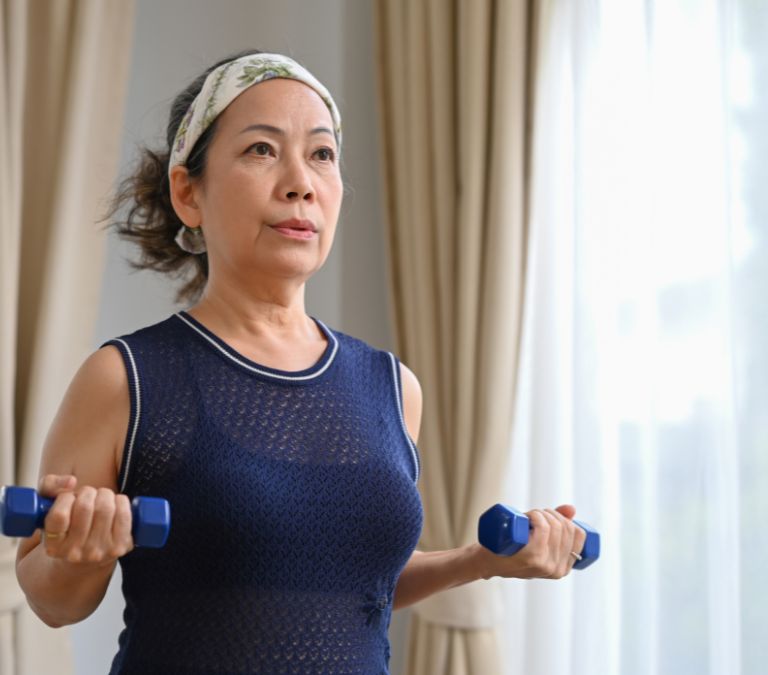
So many women today tend to engage in more minor physical exercises on clocking menopause. With this, they become more sedentary and less active. Studies have proven that regular exercise reduces your risk of developing up to 10 cancers.
For this reason, women ought to embrace the concept of exercise. Menopause and exercise, regular exercise should go hand in hand. Whether moderate or vigorous, exercises have been proven to help burn calories and prevent weight gain. You can start with walking long distances, then running on the treadmill.
Exercise will help manage and prevent weight gain and reduce the risk of breast cancer. It’ll also help cushion the effects of other menopausal symptoms like hot flashes and anxiety. Try riding a bike to the bookstore instead of using the car.
Do less sitting and more standing, go swimming with friends and relatives, use the stairs instead of the elevator, and try as much as possible to work out at least 150 minutes every week. If your work requires you to sit for long hours behind a desk, find time to be less passive. These activities will help you manage weight gain effectively and reduce your susceptibility to breast cancer.
Embracing Fruits and Veggies
Studies have shown that the healthiest fat is the one gotten from vegetables. Vegetables are of immense nutritional benefits. They are packed with various antioxidants, vitamins, minerals, and fiber. With this, vegetables are often recommended by nutritionists, dietitians, and doctors for healthy living. That is why up to 50% of your diet should include vegetables.
For women like us going through menopause, vegetables play a crucial role in helping to reduce our risks of developing breast cancer. According to research, menopausal women who consume a lot of veggies will experience a 19% drop in symptoms like weight gain, hot flashes, and night sweats compared to women who aren’t fans of veggies.
Postmenopausal women are prone to osteoporosis, a disease characterized by weak and unhealthy bones. By eating vegetables, women at the postmenopausal stage of their lives can utilize the chemicals gotten from veggies to balance the estrogen levels in their systems.
They get protection from weak bones and cancer linked to estrogen deficit problems. With this, menopausal women ought not to live life the same way they did before menopause. While vegetables aren’t the first diet choice of many women today, opting for them will save you from complications. It will help cushion the effects of menopause, and you will live a healthier life.
Drinking a Lot of Water
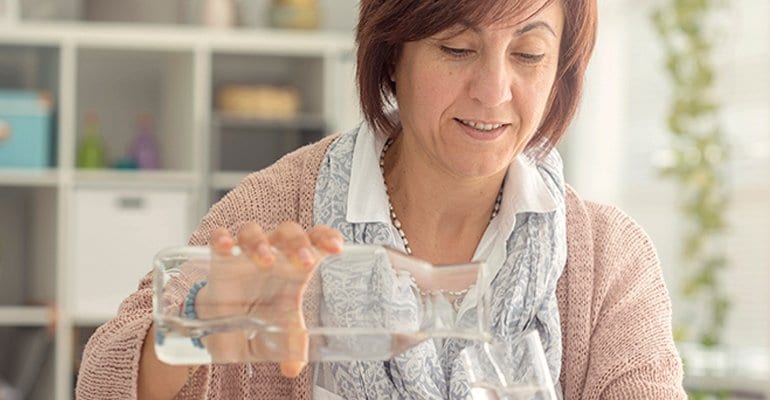
Menopausal women should always stay hydrated. Don’t rely on feeling thirsty before you can take water. 8-10 glasses of water every day will help you stay hydrated. Drinking water becomes even more critical if you already have breast cancer and are under medications. Due to the dehydrating power of chemo drugs, aiming for at least eight glasses of water daily will help you stay hydrated.
Reducing Alcohol Intake
Women should try as much as possible to limit their average alcohol intake. Alcoholic Beverages are known to raise estrogen levels and other hormones associated with hormone-receptor-positive breast cancer. If you are a frequent consumer of alcoholic beverages, you are 15% more likely to develop breast cancer when compared to other women who do not take alcohol. Terminating total alcohol intake remains the best option over limiting it.
Staying away from Cigarettes
Smoking increases your chances of developing breast cancer and increases your chances of dying from breast cancer. With this, you should avoid cigarettes to be on the safer side.
Breast Cancer Diagnosis
Some tests used in the diagnosis of breast cancer include:
Mammogram
It is an X-ray of the breast. Mammograms are used in scanning and screening the breast for any abnormalities or growths.
Breast Ultrasound
Ultrasound uses sound waves to produce images of the body’s internal structures. Ultrasound can determine whether the breast has any lump, fluid-filled cyst, or solid mass. These are signs of breast cancer.
Breast Exam
In this test, a doctor examines the breasts for signs of lumps and other abnormalities.
Biopsy
A biopsy involves removing a sample of the breast cells for testing. It is the only definitive way of diagnosing breast cancer.
Breast Cancer Treatments
The treatment of breast cancer depends on the kind of breast cancer. Generally, surgery is the first step in cancer treatment. The treatment options for cancer are explained below:
Surgery
Surgery is the removal of the tumor as well as surrounding tissues. Opting for surgery depends on the size of the cancer. A smaller tumor means more surgical options for the patient. Surgery for treating breast cancer can come in two types; lumpectomy and mastectomy. Lumpectomy is the removal of the tumor, together with some surrounding healthy tissues. Radiation therapy can be advised if, after surgery, the cancer is found to be invasive. In a lumpectomy, most of the breast remains.
On the other hand, mastectomy is the surgical removal of the entire breast. If the breast tumor size is relatively large, mastectomy will be a treatment option for breast cancer. Reconstructive surgery can be used to restructure the breasts after going through surgery.
Chemotherapy
Chemotherapy involves using specific medicines to kill or shrink cancer cells. The drugs for chemotherapy can come in the form of pills or can be injected into the veins. Sometimes, pills and injections are used as chemo medications in breast cancer treatment. Sometimes, radiation therapy is used after chemotherapy when no evidence of cancer growth is seen in the lymph nodes of the breast.
Hormonal Therapy
Hormone therapy is also called endocrine therapy. This treatment option restricts or stops cancer cells from getting the hormones needed to grow. By blocking the hormones, hormonal therapy helps prevent the recurrence of cancer. Only tumors that use hormones for their growth can be affected by hormonal therapy.
Radiation therapy
Also known as radiotherapy, this uses high-energy rays to kill cancer cells. A radiation oncologist is a doctor in charge of giving radiation therapy to treat cancer.
How Hormone Replacement Therapy (HRT) Increases the Risk of Breast Cancer
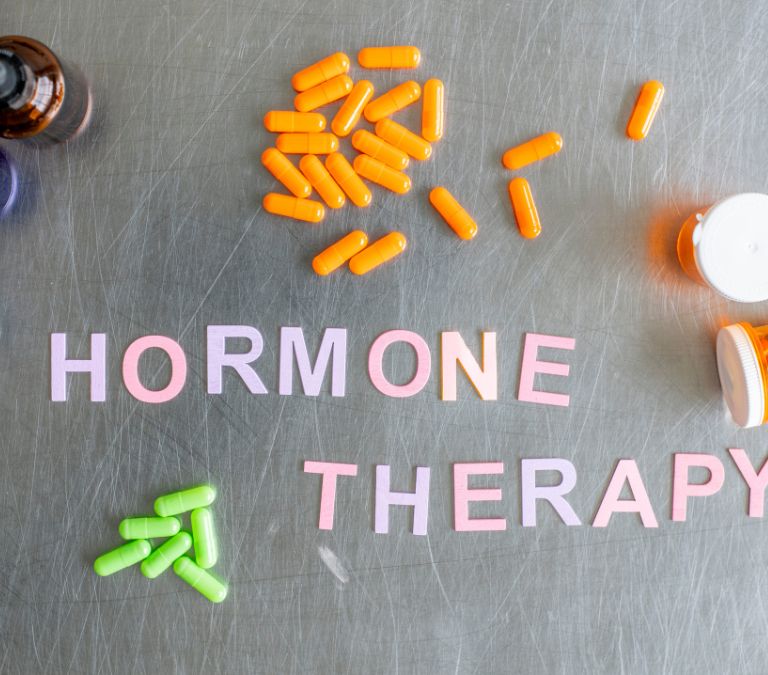
Hormone Replacement Therapy has been a topic of debate among menopausal women. HRT is often given to women to cushion the effects of menopausal symptoms on them. However, studies have shown that women who stay on HRT for an extended time are more at risk of being diagnosed with breast cancer.
How HRT Works
HRT is typically taken to reduce the effects of menopausal symptoms on women going through menopause. HRT helps replace hormones that have become low as a result of menopause. With this, there tends to be some hormonal balance in the body.
The fluctuations of vital hormones in the body of menopausal women are the main reasons for so many uncomfortable menopausal symptoms. With HRT, symptoms like hot flashes, night sweats, reduced sex drive, vaginal dryness aka painful sexual intercourse aka Dyspareunia, and mood swings can be relieved. HRT can also help with osteoporosis problems, which are very common in the postmenopausal phase of life.
Risks of HRT
While the benefits of Hormone Replacement Therapy are known to outweigh the risks, HRT can cause problems as severe as cancer, heart diseases, blood clots, and stroke. Before people uncovered the dangers of HRT, many women took this treatment option to alleviate the problems of menopausal symptoms. However, the number of women taking HRT has significantly dropped since researchers linked it to breast cancer.
Generally, there are two types of Hormone Replacement Therapy. They include estrogen-only HRT and combination HRT. While the former contains the estrogen and progesterone hormone, the latter has only estrogen.
Estrogen-only HRT will only increase your risks of developing breast cancer when used for as much as ten years. On the other hand, combination HRT can increase your risk of developing cancer by as much as 75%. The risks still stand even if this HRT is used for a short time. Also, there is a high chance that combination HRT will increase the likelihood of breast cancer being diagnosed at an advanced stage. It also increases the possibility of death from breast cancer.
Hormone Replacement Therapy is very beneficial in helping to subtle menopausal symptoms but can be lethal when its connection to breast cancer is analyzed.
Cognitive Behavioral Therapy (CBT) during Breast Cancer
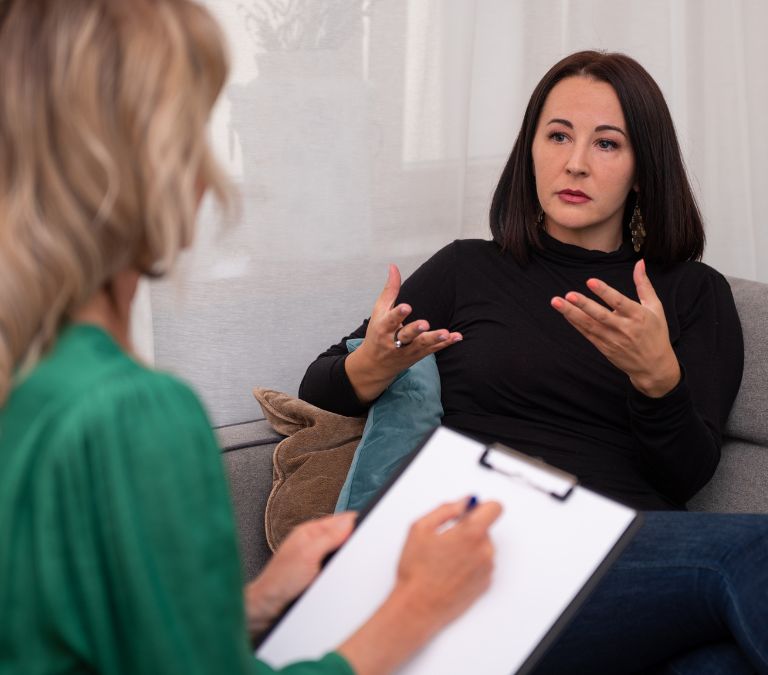
Cognitive Behavioral Therapy is a type of psychotherapy that alleviates negative thoughts about an individual to alter unwanted behavior patterns or manage mood disorders. You may ask how this sort of therapy can benefit breast cancer patients.
In the general cancer population, CBT has proven to be very helpful in helping cancer patients stay optimistic during cancer treatment. Cancer is the second cause of death in humankind, and breast cancer is the leading cause of female death in the United States. During the diagnosis and treatment of cancer, patients tend to go through some emotional roller coaster.
The reason for this emotional drive is not far-fetched when the mortality rate for cancer is studied; up to ten million people die from cancer every year. With this, patients experience psychological disorders, which will cause adverse impacts on their quality of life. Worry, anxiety, depression, and mood swings.
Generally, breast cancer patients need all the psychological support they can get. For this reason, CBT is important. CBT has helped decrease the psychological symptoms associated with breast cancer and increase these patients’ overall quality of life.
Menopause should not be seen as an illness. Menopause is a natural transition that indicates growth. People do not tell you that menopause gives you a fresh outlook on life. Leaving the pressure associated with reproductive years gives so many women a sense of self-esteem and accomplishment.
You tend to focus more on yourself, your relationships, and your goals. Studies have shown that the feeling of optimism increases when you get to fifty. So, don’t see menopause as the body’s way of communicating retirement. When the symptoms become overwhelming, remember that engaging in exercises, opting for fruits and vegetables, and inquiring with a qualified doctor can help you overcome those circumstances.
With innovations in the medical industry, various treatment options are now available for breast cancer in The United States. In getting to menopause, we should be more intentional with managing and maintaining good health. Menopause puts us at risk of many diseases; this is why we should go for regular medical checkups. Going for regular medical checkups will help you detect problems like breast cancer.
